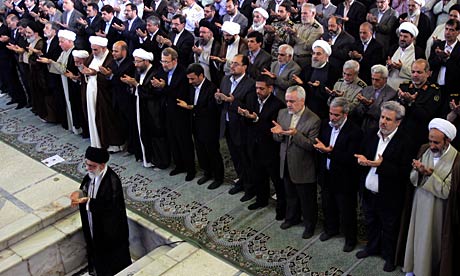Political Issues
What is the difference between Sunni and Shia Muslims? -by Tahir Sherriff
CLASHES between Islam’s two big sects, the Sunni and the Shia, take place across the Muslim world. In the Middle East a potent mix of religion and politics has sharpened the divide between Iran’s Shia government and the Gulf states, which have Sunni governments. Last year a report by the Pew Research Centre, a think tank, found 40% of Sunnis do not consider Shia to be proper Muslims. So what exactly divides Sunni and Shia Islam and how deep does the rift go?
The argument dates back to the death in 632 of Islam’s founder, the Prophet Muhammad. Tribal Arabs who followed him were split over who should inherit what was both a political and a religious office. The majority, who would go on to become known as the Sunnis, and today make up 80% of Muslims, backed Abu Bakr, a friend of the Prophet and father of his wife Aisha. Others thought Muhammad’s kin the rightful successors. They claimed the Prophet had anointed Ali, his cousin and son-in-law—they became known as the Shia, a contraction of “shiaat Ali”, the partisans of Ali. Abu Bakr’s backers won out, though Ali did briefly rule as the fourth caliph, the title given to Muhammad’s successors. Islam’s split was cemented when Ali’s son Hussein was killed in 680 in Karbala (modern Iraq) by the ruling Sunni caliph’s troops. Sunni rulers continued to monopolise political power, while the Shia lived in the shadow of the state, looking instead to their imams, the first twelve of whom were descended directly from Ali, for guidance. As time went on the religious beliefs of the two groups started to diverge.
Today the world’s 1.6 billion Muslims all agree that Allah is the only God and Muhammad his messenger. They follow five ritualistic pillars of Islam, including Ramadan, the month of fasting, and share a holy book, the Koran. But while Sunnis rely heavily on the practice of the Prophet and his teachings (the “sunna”), the Shia see their ayatollahs as reflections of God on earth. This has led Sunnis to accuse Shia of heresy, while Shia point out that Sunni dogmatism has led to extremist sects such as the puritanical Wahhabis. Most Shia sects place importance on the belief that the twelfth and final imam is hidden (called “in occultation”) and will reappear one day to fulfill divine will. Meanwhile, their sense of marginalisation and oppression has led to mourning ceremonies such as ashura, when followers flagellate themselves to commemorate Hussein’s death at Karbala.
There has never been a clash between the Shia and Sunni on the scale of the Thirty Years War, which saw Christian sects fight each other in 17th-century Europe with great loss of life. This is partly because the Shias, ever mindful of their minority status, retreated. The lines that divide Muslims in the Middle East today are being drawn by politics as much as by religion. The “Shia Crescent” that runs from Iran, through Mr Assad’s regime in Damascus to Hizbullah in Lebanon was once praised by Sunni figures. But the revolutions in the region have pitted Shia governments against Sunni Gulf states such as Saudi Arabia and Qatar, who have supported their co-religionists with cash. This is strengthening Sunni assertiveness and making the Shia feel more threatened than usual. In most cases, though, members of the two sects still live harmoniously together.










